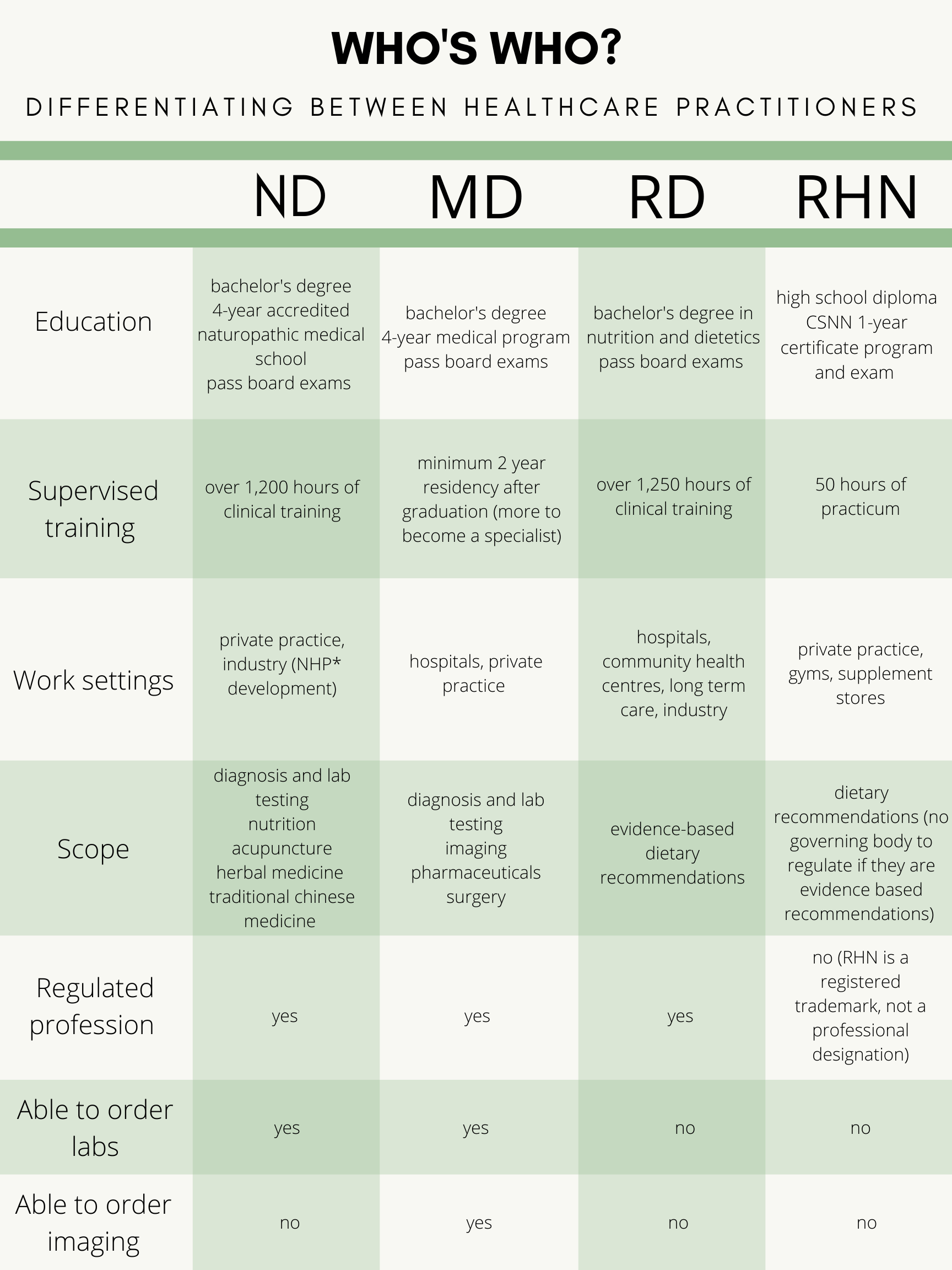What’s the difference between a naturopathic doctor and a holistic nutritionist?
A quick guide to who’s who in medicine and nutrition
One of the questions I get asked most frequently is “how are naturopathic doctors different from holistic nutritionists or dieticians?” In the age of information, platforms like Instagram and Facebook give everyone an equal voice for sharing information, however each of these professions has different education and scope of practice. So how do you know who is qualified to be making the health claims you see online? And who’s help should you seek out if you have an ailment?
The chart below breaks down key differences between naturopathic doctors (ND), medical doctors (MD), registered dieticians (RD) and registered holistic nutritionists (RHN).
*Natural Health Products
Note: I didn’t include a column for nutritionists. This is because the term ‘nutritionist’ is not legally protected or registered in BC.
A closer look
What is ‘scope of practice’ and why is it important?
A practitioner’s scope of practice defines what they legally can and cannot do as health professionals. This includes things like ordering lab work, prescribing medication and natural health products, or regulated acts such as acupuncture or chiropractic adjustments. Our government defines these scopes of practice in order to protect it’s citizens- you wouldn’t want someone with no training or experience flying your plane! In the same way, you wouldn’t want someone without adequate medical education prescribing you medication or supplements.
What does ‘regulated profession’ mean and why is it important?
Regulated professions have governing bodies that oversee them. The governing bodies are responsible for enforcing standards of practice. They also have the power to discipline or revoke the licence of practitioners who do not comply with these standards. This is important for patients because it ensures that the regulated health professional you are seeing is practicing safely and ethically.
So who should you book an appointment with? The answer to this question depends on your health goals.
If you are looking for general wellness recommendations any of these practitioners could provide great advice.
If you have specific health goals related to a health condition and are looking for an evidence-based, non-pharmaceutical treatment to complement your current regime, then a registered dietician or naturopathic doctor would be a good fit for you.
If you are experiencing unexplained symptoms it is necessary to see an MD or ND to get an accurate diagnosis. MDs and NDs are both trained in the art and science of diagnosis, with the key difference between them being that MDs are able to order imaging such as X-rays and MRIs and NDs are not. Both MDs and NDs can offer treatment themselves. MDs have additional power to refer patients to specialists (including referral to RDs if they believe nutritional advice is appropriate).
The bottom line
Be critical about information you see online and always seek medical advice from someone who is equipped to provide it.


